Nobody Denied It Happened?
Hello everyone. Last year, Professor Deborah Lipstadt gave a lecture about Holocaust denial at the University of Oxford. There she stated:
“In not one war-crimes trial since the end of World War Two has a perpetrator of any nationality ever said it didn’t happen.” (1:55)
There are many, many people in fact who are under the same impression; they are quite certain that during the trials all the Nazis fell to their knees exclaiming “We did it!”. But is this true?
In order to find out we will have a look at several Nazi testimonies from the International Military Tribunal (IMT) and Nuremberg Military Tribunal (NMT) transcripts regarding the alleged attempt to exterminate the Jews – testimonies you will never find in history books.
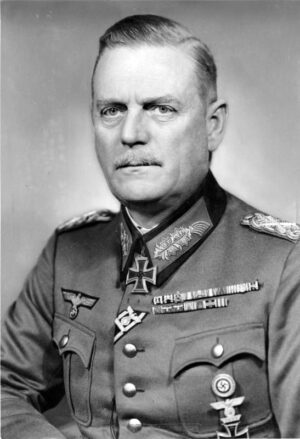
We begin with Field Marshal Wilhelm Keitel (IMT, v. 10, p. 594, 598):
“DR. LATERNSER: Do you know whether the higher military commanders at any time were informed of the intention of Hitler or Himmler to kill the Jews?
KEITEL: According to my opinion, that was not the case, since I personally was not informed either. […]
DR. HORN: In connection with the testimony by General Lahousen, I want to ask you one question. At the time of the Polish campaign, was there a directive or an order by Hitler to exterminate the Jews in the Polish Ukraine?
KEITEL: I cannot recall any such things. I know only that during the occupation of Poland – that is after the occupation – the problem of the Polish Jews played a part. In that connection I also put a question once to Hitler to which, I believe, he answered that that area was well suited for settling the Jews there. I do not know or remember anything else.”
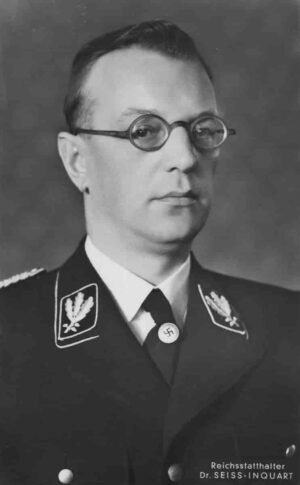
We continue with Reichskommissar Arthur Seyss-Inquart (v. 16, p. 19):
“DR. HAENSEL: You said in your interrogation that a decree of Heydrich’s caused you to have Jews transported from Holland. Did you see Hitler’s decree to Heydrich?
SEYSS-INQUART: I think so – a decree from Hitler to Heydrich alone would not have been for Heydrich.
DR. HAENSEL: You picture the situation as if Heydrich had told you that he had this decree.
SEYSS-INQUART: Yes, he told me that, and a few weeks later he sent me this decree.
DR. HAENSEL: Was it in writing?
SEYSS-INQUART: Yes, it was in writing.
DR. HAENSEL: And what did the decree say?
SEYSS-INQUART: That he had complete charge of the final solution of the Jewish question as well as other matters dealing therewith.
DR. HAENSEL: And when was this? 1941? 1940?
SEYSS-INQUART: It was at about the time when the evacuations started. That was in 1942.
DR. HAENSEL: That must be wrong. It was 1941, not later.
SEYSS-INQUART: Perhaps he showed me the decree later. I do not know the date of the decree.
DR. HAENSEL: That must be the case. But this decree, you said, was conceived in general terms?
SEYSS-INQUART: General terms.
DR. HAENSEL: It could be interpreted one way or another? I mean, you know…
SEYSS-INQUART: Yes, I had the impression that in the occupied territories Heydrich was to carry through the evacuation, and at that time I was not quite sure whether that was to be a final evacuation – which, however, was possible. The most extreme possibility was that the Jews would be collected in camps and after the end of the war settled somewhere.
DR. HAENSEL: I beg your pardon, Witness, the most extreme possibility would certainly be that the Jews would be destroyed, is that not so?
SEYSS-INQUART: I am speaking of the most extreme possibility which I thought of at the time.”
He also added (p. 20):
“DR. HAENSEL: Before 1943 did you discuss these problems with Hitler?
SEYSS-INQUART: I was merely present when Hitler talked about these problems. It was always along this line, to eliminate the Jews from the German population and to send them somewhere abroad.
DR. HAENSEL: But there was no talk at all about destruction of the Jews?
SEYSS-INQUART: Never.”
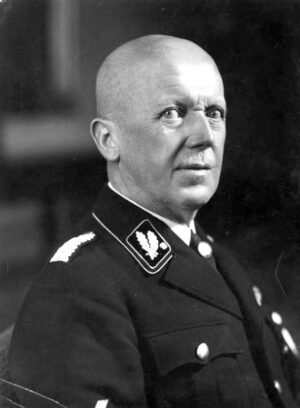
Now we turn to the Chief of the Reich Chancellery Hans Lammers (v. 11, pp. 50-53):
“DR. THOMA: I have only one more question. Did you know anything regarding the fact that Hitler had decided to solve the Jewish question by the final solution, that is, by the annihilation of the Jews?
LAMMERS: Yes, I know a great deal about that. The final solution of the Jewish question became known to me for the first time in 1942. That is when I heard that the Führer supposedly, through Göring, had given an order to the SS Obergruppenführer Heydrich to achieve a solution of the Jewish question. I did not know the exact contents of that order and consequently, since this did not come within my jurisdiction, at the beginning I took a negative attitude, but then as I wanted to know something I, of course, had to contact Himmler. I asked him what was really meant by the idea of the final solution of the Jewish question. Himmler replied that he had received the order from the Führer to bring about the final solution of the Jewish problem – or rather Heydrich and his successor had that order – and that the main point of the order was that the Jews were to be evacuated from Germany. With that statement I was satisfied for the time and waited for further developments, since I assumed that I would now in some way – I really had no jurisdiction here – I would obtain some information from Heydrich or his successor, Kaltenbrunner. Since nothing did come I wanted to inform myself about this, and back in 1942 I announced a report to the Führer, whereupon the Führer told me that it was true that he had given Himmler the order for evacuation but that he did not want any further discussion about this Jewish question during the war. […]
In the meantime I once more turned to Herr Himmler. He was of the opinion that it was necessary to discuss this question since a number of problems would have to be solved, particularly since the intention of achieving a final solution of the Jewish question would probably extend to persons of mixed blood, first grade, and would also extend to the so-called ‘privileged’ marriages, that is to say, marriages where only one party was Aryan whereas the other party was Jewish. The Führer stated once more that he did not wish to have a report on it but that he had no objections to consultation on these problems. That some evacuations had taken place in the meantime had become known to me. At that time, at any rate, not the slightest thing was known, about the killing of Jews; if crass individual cases came up, I always addressed myself to Himmler and he was always very willing to settle these individual cases. Finally, however, in 1943, rumors cropped up that Jews were being killed. I had no jurisdiction in this field; it was merely that I occasionally received complaints and on the basis of these complaints I investigated the rumors. But, as far as I could tell, at any rate, these rumors always proved to be only rumors. Every one said he had heard it from somebody else and nobody wanted to make a definite statement. I am, in fact, of the opinion that these rumors were based mostly on foreign broadcasts and that the people just did not want to say from where they had the information. That caused me once more to undertake an investigation of this matter. First of all, since I, for my part, could not initiate investigations of matters under Himmler’s jurisdiction, I addressed myself to Himmler once again. Himmler denied any legal killings and told me, with reference to the order from the Führer, that it was his duty to evacuate the Jews and that during such evacuations, which also involved old and sick people, of course there were cases of death, there were accidents, there were attacks by enemy aircraft. He added too, that there were revolts, which of course he had to suppress severely and with bloodshed, as a warning. For the rest, he said that these people were being accommodated in camps in the East. He brought out a lot of pictures and albums and showed me the work that was being done in these camps by the Jews and how they worked for the war needs, the shoemakers shops, tailors shops, and so forth. He told me:
‘This is the order of the Führer; if you believe that you have to take action against it then tell the Führer and tell me the names of the people who have made these reports to you.’
Of course, I could not tell him the names, first of all because they did not want to be named, and secondly, they only knew these things from hearsay, so as I said, I could not have given him any definite material at all. Nevertheless, I once again reported this matter to the Führer, and on this occasion he gave me exactly the same reply which I had been given by Himmler. He said, ‘I shall later on decide where these Jews will be taken and in the meantime they are being cared for there.’ […]
DR. THOMA: But, Witness, please be quite brief. I am now putting this question to you: Did Himmler ever tell you that the final solution of the Jewish problem would take place through the extermination of the Jews?
LAMMERS: That was never mentioned. He talked only about evacuation.
DR. THOMA: He talked only about evacuation?
LAMMERS: Yes, only about evacuation.
DR. THOMA: When did you hear that these 5 million Jews had been exterminated?
LAMMERS: I heard of that here a while ago.”
And later (p. 115):
“MAJOR JONES: Are you, as the head of the Reich Chancellery, the man who knew all the secrets of the Third Reich, saying to this Tribunal that you had no knowledge of the murder of millions and millions who were murdered under the Nazi regime?
LAMMERS: I mean to say that I knew nothing about it until the moment of the collapse, that is, the end of April 1945 or the beginning of May, when I heard such reports from foreign broadcasting stations. I did not believe them at the time, and only later on I found further material here, in the newspapers. If we are speaking now of the elimination of a harmful influence that is far from meaning annihilation. The Führer did not say a word about murder; no mention was ever made of such a plan.”
Lammers also testified at the Ministries Case (NMT, v. 13). Asked again about the Final Solution he affirmed (pp. 419-421):
“Q. Witness, I must return to the killings of Jews. You stated that you had no knowledge of that. But I must nevertheless ask you, didn’t you at least hear rumors of such killings of Jews, and what did you undertake on hearing them?
A. Only in the year 1943 did such rumors come to my knowledge and this happened through private conversations and through a few anonymous and pseudonymous letters. But for me these rumors remained rumors. I looked into them. However, I never succeeded in ascertaining anything positive regarding the truth of such alleged facts. People bringing me such rumors never wished to stand their ground and withdrew when I tried to pin them down to their statements. It always turned out that they would name their informants or did not wish to and that they themselves were not eyewitnesses. I myself always had the impression that such rumors rested solely on the listening to foreign radios which was strictly forbidden and punishable and in the last analysis no one wished to confess this activity. So far as I looked into letters that were actually signed, I found out that these were pseudonymous letters, and so far as I wished to pin any individual down to an actual deposition of facts, that never came about because the persons did not wish to stick to their stories and could produce no actual recounting of facts, and were themselves not eyewitnesses. […]
Q. In what then did the problem of the final solution consist so far as you understood that term at that time and I emphasize your understanding of the term at that time?
A. The solution was to lie in the evacuation of full-blooded Jews, and secondly, a regulation of some sort concerning the privileged Jews and the half-Jews.
Q. Witness, on the basis of the minutes of the three meetings of 20 January 1942, 6 March 1942, and 27 October 1942 put in by the prosecution, are you stilI of the opinion that no program for exterminating the Jews was ever set up and that, secondly, with regard to including half-Jews and privileged Jews in the evacuation or other measures, no program was set up?
A. Yes. I am of that opinion. At least this program never came to my attention. The program cannot have been set up.”
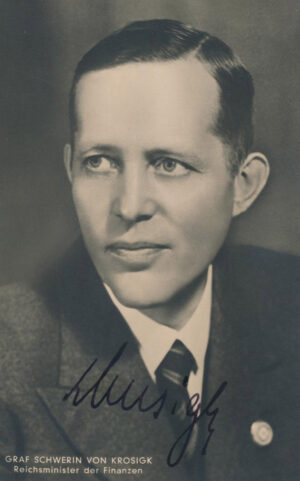
Minister of Finance Johann Ludwig Schwerin von Krosigk and Secretary of the Foreign Office Ernst von Weizsäcker were also examined during that trial. On the Final Solution, von Krosigk stated (p. 406):
“Q. With reference to the problem of the treatment of the Jews I have one more question. These matters have been repeatedly discussed here. I would only like to hear your personal attitude. What did you know about the so-called Final Solution [Endlösung] of the Jewish Question?
A. I cannot remember ever having heard the term at all before the collapse. At any rate I was not aware of any physical extermination as a solution of the Jewish question.
Q. The prosecution naturally says that many people in Germany knew it and asks why you, as a minister, did not know it. Is it possible for you to explain that?
A. Of course it could not remain hidden from me that in wartime Jews were evacuated from Germany. All the less since the property they left behind them was transferred to my financial authority for administration and evaluation. But as far as a plan, the execution of such a plan went, that this evacuation was to lead to extermination, that is something of which I never heard anything at all. When I asked I was always told that these measures were equivalent to the internment of enemy nationals in wartime for security reasons.
Q. At that time were you ever given the name of a place where they were taken?
A. The East was mentioned quite generally. I only heard one name. That was Theresienstadt. That was given to me as a place which had been evacuated by other inhabitants and made available for the settlement of German Jews.”
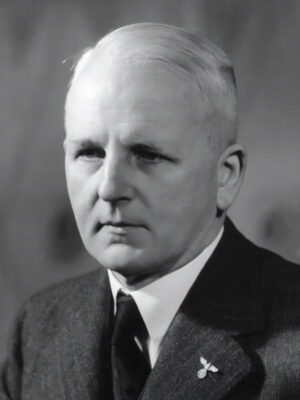
And von Weizsäcker (p. 437):
“Q. Were you kept currently informed about what was happening to the Jews and what extent the extermination [Vernichtung] had assumed?
A. From the very beginning I considered many atrocious actions possible, but my imagination did not suffice to picture what I actually learned after the collapse.
Q. Didn’t you know of the plan of the so-called Final Solution [Endlösung], I mean the plan regarding the final extermination of all the Jews who were reported to the East?
A. This plan was completely unknown to me.”
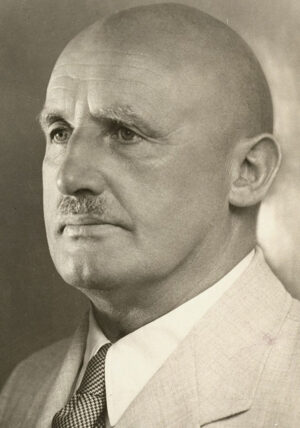
We return to Nuremberg with the testimony of Julius Streicher (IMT, v. 12, p. 374):
“LT. COL. GRIFFITH-JONES: We will go on. Now, I just want to put one or two further articles of your own to you. You remember what I am suggesting, that you are inciting the German people to murder. We know now that at least you had read one article in the Israelitisches Wochenblatt where murder is mentioned. I just want to see what you go on to publish in your own paper after that date. Would you look at Page 47-A. This is an article by yourself on 6 January 1944. This is after you had been living on your estate for some time.
‘After the National Socialist uprising in Germany, a development began in Europe, too, from which one can expect that it will free this continent for all time of the Jewish disintegrator and exploiter of nations; and, over and above this, that the German example will, after a victorious termination of the second World War, bring about the destruction of the Jewish world tormentor on the other continents as well.’
What example was the German nation setting to the other nations of the world? What example do you mean there?
STREICHER: This article corroborates what I have been saying all along. I spoke of an international solution of the Jewish question. I was convinced that if Germany had won this war or had been victorious over Bolshevism, then the world would have agreed that an understanding should be reached with the other nations for an international solution of the Jewish question. If I wrote here about destruction, it is not to be understood as destruction by mass killing; as I have said, that is an expression; I have to point out that I do not believe that Erich Kauffmann[1] really wanted to kill the German people by sterilization, but he wrote it, and we sometimes wrote in the same manner, echoing the sounds that we heard in the other camp.
LT. COL. GRIFFITH-JONES: You have not yet told us what is this international solution that you are advocating by talking about extermination; if it is not murder, what is it? What is the solution?
STREICHER: I have already said that I founded the Anti-Semitic Union, and through this Anti-Semitic Union we wanted to create movements among the nations which should, above and beyond governments, act in such a way that an international possibility would be created, such as has been represented today here in this Trial – thus I conceived it, to form an international congress center which would solve the Jewish question by the creation of a Jewish state and thereby destroy the power of the Jews within the nations.
LT. COL. GRIFFITH-JONES: That is your answer – that you were advocating a Jewish state? Is that all that this comes to? Is it simply that you were advocating a Jewish national home? Is that what you have been talking about in all these extracts that we have read? Is that the solution which you are advocating?
STREICHER: Well, I do not know what you want with that question. Of course, that is the solution.
LT. COL. GRIFFITH-JONES: Very well. Let us just go on now. Turn to Page 48-A now, will you? This is 24 January 1944, ‘Whoever does what a Jew does is a scoundrel, a criminal, and he who repeats and wishes to copy him deserves the same fate – annihilation, death.’
Are you still advocating a national Jewish home?
STREICHER: Yes, that has nothing to do with the big political plan. If you take every statement by a writer, every statement from a daily newspaper, as an example, and want to prove a political aim by it, then you miss the point. You have to distinguish between a newspaper article and a great political aim.”
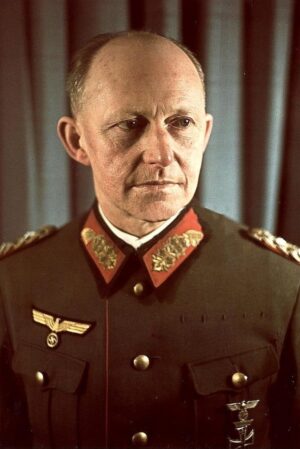
Next, Chief of the Wehrmacht Alfred Jodl (v. 15, p. 332):
“DR. EXNER: As we are just talking of the Jews, will you tell the Court what you knew about the extermination of Jews? I remind you that you are under oath.
JODL: I know just how improbable these explanations sound, but very often the improbable is true and the probable untrue. I can only say, fully conscious of my responsibility, that I never heard, either by hint or by written or spoken word, of an extermination of Jews. On one single occasion I had doubts, and that was when Himmler spoke about the revolt in the Jewish Ghetto. I did not quite believe in this heroic fight; but Himmler immediately supplied photographs showing the concrete dugouts which had been built there, and he said, ‘Not only the Jews but also Polish Nationalists have taken refuge there and they are offering bitter resistance.’ And with that he removed my suspicions.
THE PRESIDENT: Are you speaking of Warsaw? What example was the German nation setting to the other nations of the world? What example do you mean there?
JODL: I am speaking of the uprising in the Warsaw Ghetto of which I heard through a personal report from Himmler given in our presence, in the presence of soldiers at the Fuehrer’s headquarters. Himmler spoke only of an uprising and of bitter fighting. As far as the activities of the Police are concerned, of the so-called action groups, Einsatzgruppen and Einsatzkommandos – a conception, incidentally, of which I first heard here in detail – there was never any explanation through the Fuehrer himself other than that these police units were necessary to quell uprisings, rebellions, and partisan actions before they grew into a menace. This was not a task for the Armed Forces, but for the Police, and for that reason the Police had to enter the operational areas of the Army. I have never had any private information on the extermination of the Jews; and on my word, as sure as I am sitting here, I heard all these things for the first time after the end of the war.”
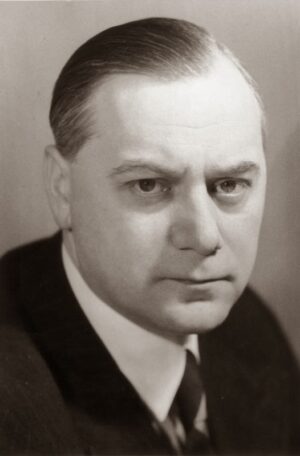
We continue with Alfred Rosenberg (v. 22, p. 382):
“The thought of a physical annihilation of Slavs and Jews, that is to say, the actual murder of entire peoples, has never entered my mind and I most certainly did not advocate it in any way. I was of the opinion that the existing Jewish question would have to be solved by the creation of a minority right, by emigration, or by settling the Jews in a national territory over a ten-year period of time. The White Paper of the British Government of 24 July 1946 shows how historical developments can bring about measures which were never previously planned.”
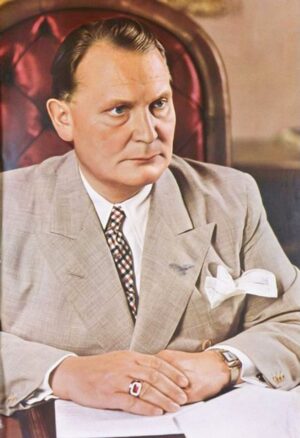
And finally, Reich Marshal Hermann Goering (v. 9, p. 619):
“SIR DAVID MAXWELL-FYFE: You heard what I read to you about Hitler, what he said to Horthy and what Ribbentrop said, that the Jews must be exterminated or taken to concentration camps. Hitler said the Jews must either work or be shot. That was in April 1943. Do you still say that neither Hitler nor you knew of this policy to exterminate the Jews?
GOERING: For the correctness of the document.
SIR DAVID MAXWELL-FYFE: Will you please answer my question. Do you still say neither Hitler nor you knew of the policy to exterminate the Jews?
GOERING: As far as Hitler is concerned, I have said I do not think so. As far as I am concerned, I have said that I did not know, even approximately, to what extent these things were taking place.
SIR DAVID MAXWELL-FYFE: You did not know to what degree, but you knew there was a policy that aimed at the extermination of the Jews?
GOERING: No, a policy of emigration, not liquidation of the Jews. I knew only that there had been isolated cases of such perpetrations.”
So here is the question: Is Dr. Deborah Lipstadt aware of all this? If yes, then she is deliberately misleading the public. If not, she is just an ignoramus who should probably stick to giving lectures on making birthday cakes.
Bibliographic information about this document: Inconvenient History, Vol. 10, No. 3 (2018)
Other contributors to this document: n/a
Editor’s comments: n/a
